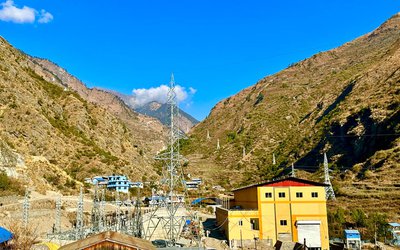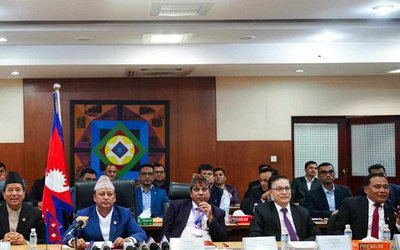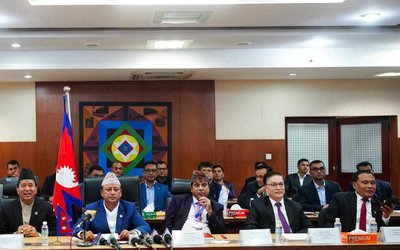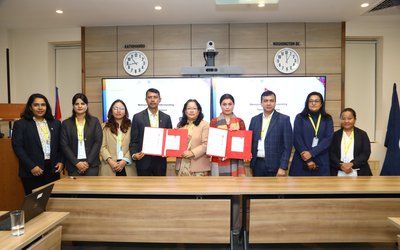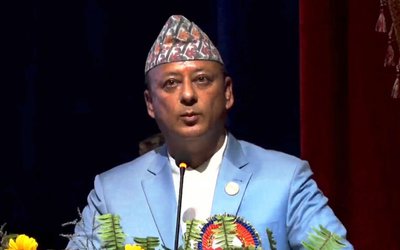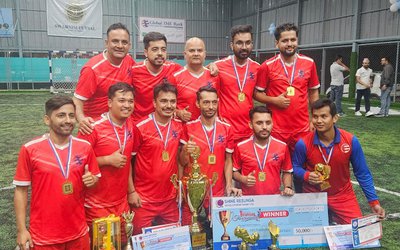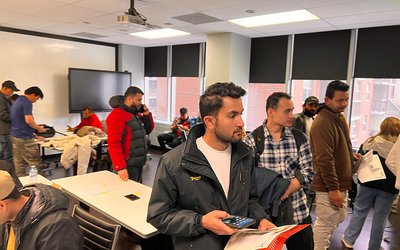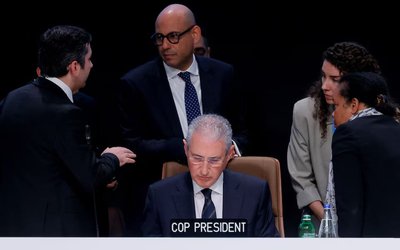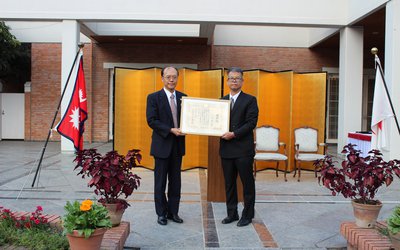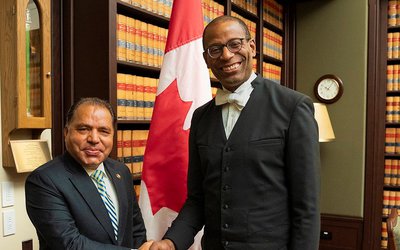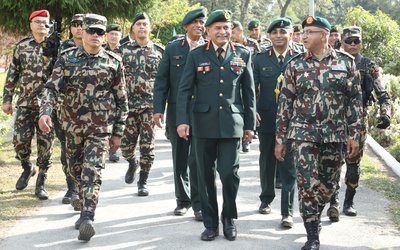
A High-level Dialogue on “Post-2015 Development Agenda and 18th SAARC Summit: Nepal’s perspectives” has been organized by SAWTEE with the objective to discuss Nepal’s development priorities.
The dialogue specifically discussed the prospects and challenges of realizing them in view of the recent debate on post-2015 Development Agenda and the Kathmandu SAARC Summit declaration on initiating an inter-governmental process to contextualize the post-2015 Development Agenda in South Asia.
The dialogue started with the program highlights and welcome remarks by Dr. Hiramani Ghimire, Executive Director, and SAWTEE. Dr. Ghimire shed lights on the proposed Sustainable Development Goals (SDGs) of the United Nations which will carry on from where the Millennium Development Goals (MDGs) end in 2015. He applauded the SDG formulation process for being participatory in which about a million people have participated. He further highlighted the need to link SAARC Development Goals with the proposed SDGs that will govern the post-2015 development landscape.
Deependra Bahadur Kshetry, Former Vice Chairman, National Planning Commission said that Nepal will not achieve most of the MDG targets soon although the progresses are promising. He stressed the need for vocational and technical education for better utilization of Nepal’s youth force within the country or abroad. Kshetry said: “It is time we move forward with inclusive, equitable and sustainable development with correction in our administrative lapses and political backlashes.”
Dr. Dinesh Bhattarai, Foreign Affairs Advisor to the Prime Minister of Nepal said that the dialogue has been organized at the right time after the conclusion of the 18th SAARC summit and just before the Ministerial Meeting of Asia-Pacific LDCs on graduation and post 2015 to be held in Kathmandu on 16-18 December 2014. “Post-2015 development agenda is an opportunity for the least-developed countries (LDCs) like Nepal. We should go ahead with some concrete steps, and business as usual will not work,” he said.
Prof. Dr. Govind Raj Pokhrel, Vice Chairman, National Planning Commission, said that the post-2015 development agenda comes with three different challenges for Nepal. First challenge is to complete the unfinished tasks of the MDGs that are due to end in about a year’s time. Second is to strike the balance between three different pillars—social, economic and environment—of sustainable development. Third challenge is to choose operational goals for Nepal and the SAARC region among 17 goals and 169 targets of the proposed SDGs. “Innovative financing with the greater role of the private sector to meet the resource need to implement the SDGs is also important for countries like Nepal,” he said.
Gyan Chandra Acharya, Under-Secretary-General and High Representative for the LDCs, LLDCs and SIDS, United Nations in his keynote address said that post 2015 development agenda should be more ambitious and wider with targets, such as total eradication of poverty and economic transformation of the nations, among others. “Justice, equity, and access to services like health and education have to be in the centre of any such goal,” he said.
He stressed the need for the LDCs to leverage the official development assistance (ODA) for their domestic resource mobilization to achieve sustainable economic growth. “UN has increased interaction with Regional organizations: for example, ASEAN recently had a summit with the UN. Likewise, SAARC should also increase its engagement with the UN and put forth its regional development agenda to the UN,” he added.
Mahendra Bahadur Pandey, Minister for Foreign Affairs, said that the 18th SAARC summit has provided a fresh impetus to SAARC with a unanimous adoption of the declaration for deeper regional integration. “New global development agenda will be helpful for the graduation of LDCs. We need greater regional collaboration and increased international cooperation to meet the resource gaps, among others,” he said.
Dr. Posh Raj Pandey, Chairman, SAWTEE, speaking as a chair, concluded the program by saying that the post-2015 development agenda should bring forth the issues such as full and productive employment, gender empowerment, that have not been adequately addressed by the MDGs. “It is important to take into account that the world has changed a lot from the time MDGs were conceived. It is vital for ‘technology’ to be considered as something that can play transformative role in achieving the SDGs,” he said.
More than 60 participants, including researchers, policy makers, private sector representatives and media, among others, participated in the dialogue.
- PM Oli's Visit To China: Geopolitical Implications
- Nov 19, 2024
- NEA: Kul Man Ghising, A Cool Man
- Oct 28, 2024
- DASHAIN FESTIVAL : Festival of Unity
- Oct 04, 2024
- NEPAL-CANADA Bilateral Meeting
- Oct 04, 2024
- MIDDLE BHOTEKOSHI: Final Stage
- Sep 23, 2024

